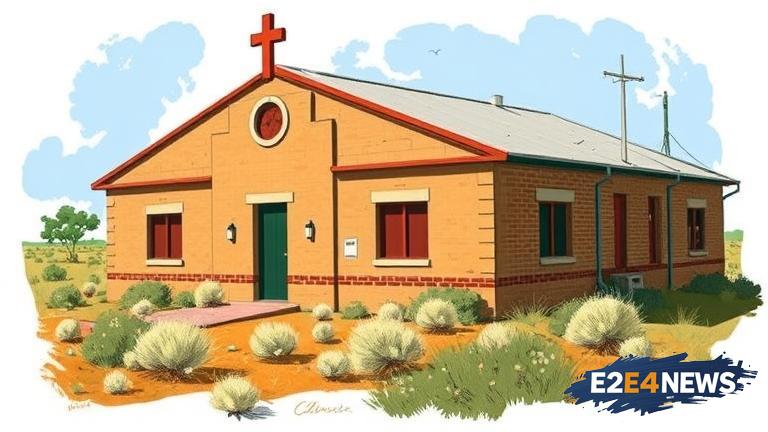CatholicCare Wilcannia Forbes, a crucial social service provider in Western New South Wales, is grappling with the aftermath of significant funding cuts. These cuts, imposed by the government, have far-reaching consequences for the organization and the community it serves. Established to provide essential support to vulnerable populations, CatholicCare Wilcannia Forbes offers a range of services including counseling, family support, and youth programs. The funding reduction jeopardizes the continuation of these vital services, leaving many in the community without access to necessary care and support. The impact of these cuts is multifaceted, affecting not only the services provided but also the employment opportunities within the organization. Staff members, who are dedicated to making a positive difference in the lives of those they serve, face uncertainty regarding their job security. This uncertainty can lead to a decrease in morale and an increase in stress levels among employees, further complicating the situation. The community, which has come to rely on the services offered by CatholicCare Wilcannia Forbes, is also deeply affected. Many individuals and families who benefit from these services are now faced with the prospect of having to seek alternative, often less accessible, options. This can exacerbate existing social issues, such as mental health concerns, family violence, and youth disengagement. The funding cuts also underscore a broader issue of underinvestment in social services in rural and regional areas. These areas often have limited resources and fewer service providers, making organizations like CatholicCare Wilcannia Forbes even more critical to the well-being of the community. The government’s decision to cut funding has been met with concern and disappointment from both the organization and the community. There are calls for a reassessment of the funding allocation, with arguments that the long-term benefits of investing in social services far outweigh the short-term cost savings. Furthermore, the importance of community-based services in preventing more severe and costly social problems cannot be overstated. In response to the funding cuts, CatholicCare Wilcannia Forbes is exploring alternative funding sources and advocating for increased government support. The organization is also working closely with the community to identify needs and develop strategies to mitigate the effects of the funding reduction. Despite these efforts, the future of CatholicCare Wilcannia Forbes remains uncertain, highlighting the need for sustained investment in social services. The situation serves as a reminder of the challenges faced by community organizations in rural areas and the importance of government support in ensuring the continuation of vital services. As the community and CatholicCare Wilcannia Forbes navigate this challenging time, there is a growing recognition of the value of social services in building resilient and supportive communities. The story of CatholicCare Wilcannia Forbes and its struggle against funding cuts serves as a testament to the dedication of community organizations and their importance in the fabric of rural society. It also underscores the need for a comprehensive approach to funding social services, one that recognizes the long-term benefits and the critical role these services play in the well-being of communities. In conclusion, the funding cuts to CatholicCare Wilcannia Forbes have significant implications for the organization, its employees, and the community it serves. The situation highlights the challenges of providing social services in rural areas and the importance of government support. As discussions around funding and service provision continue, it is essential to prioritize the needs of the community and ensure that vital services are protected and supported.
